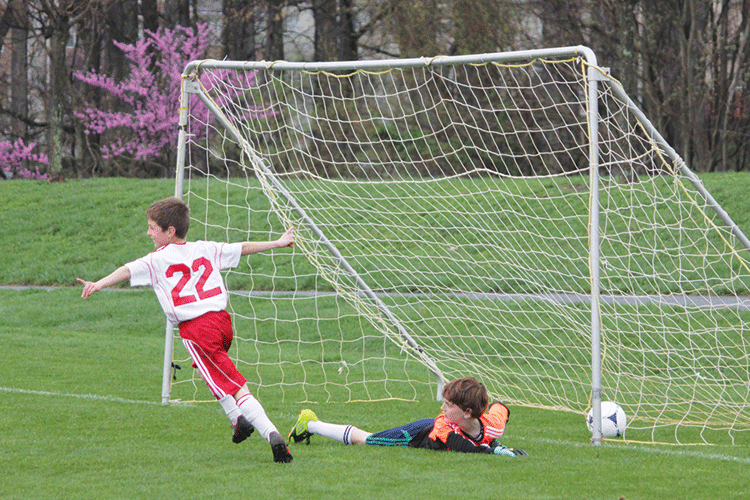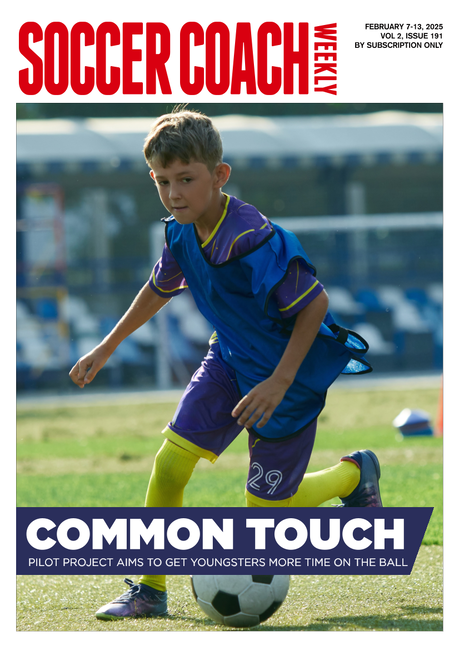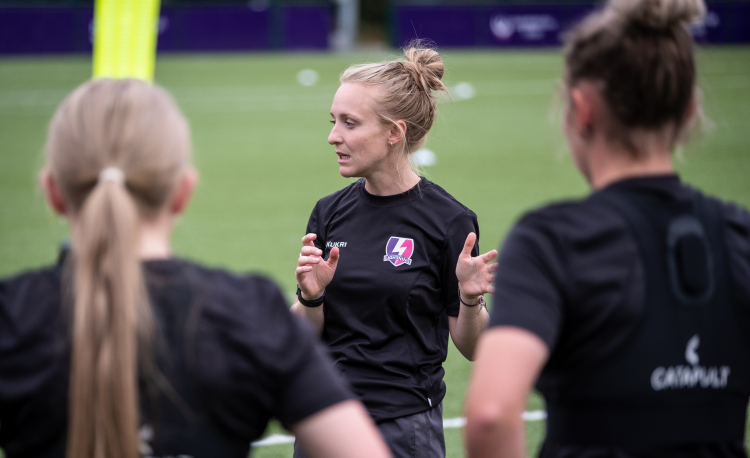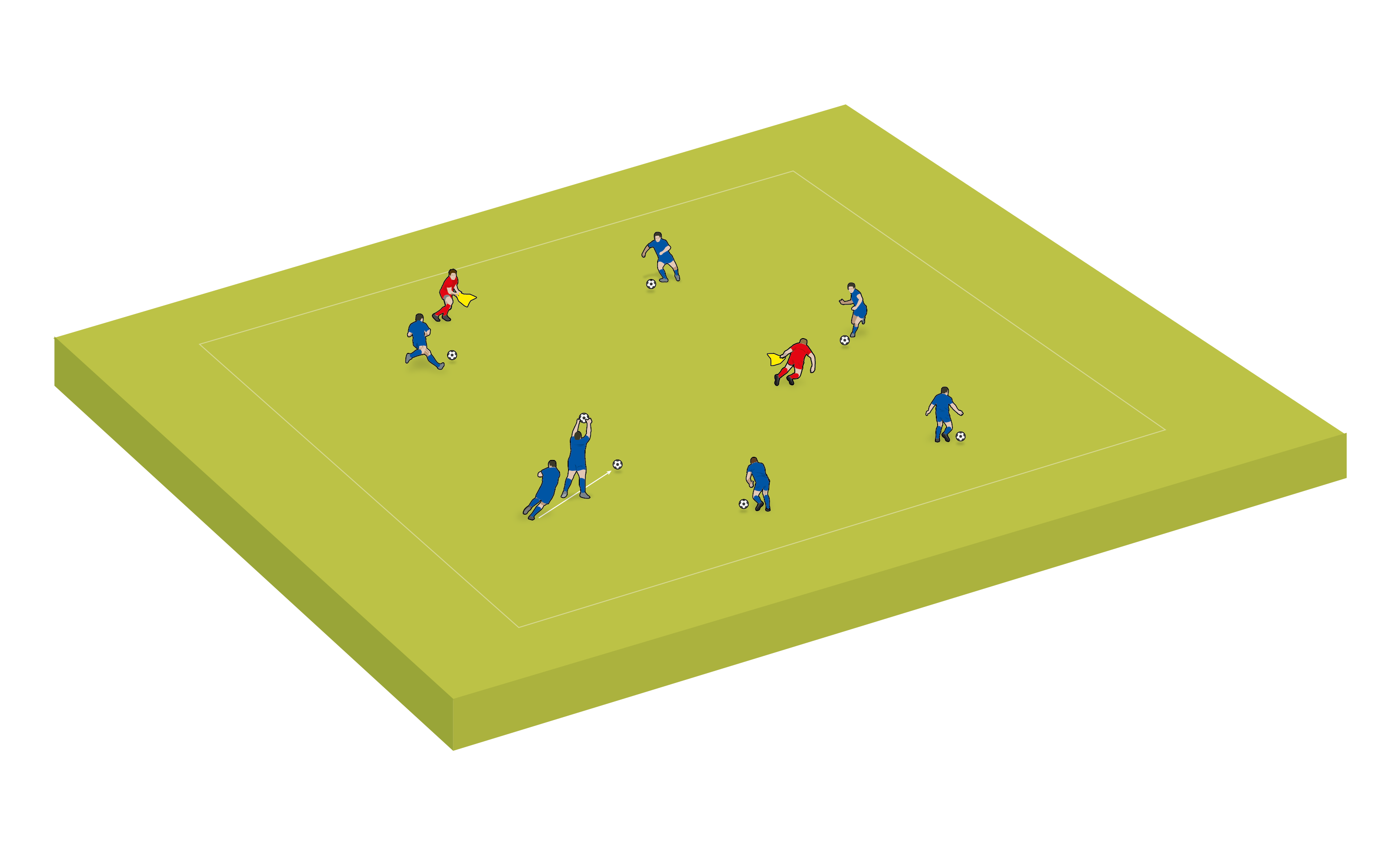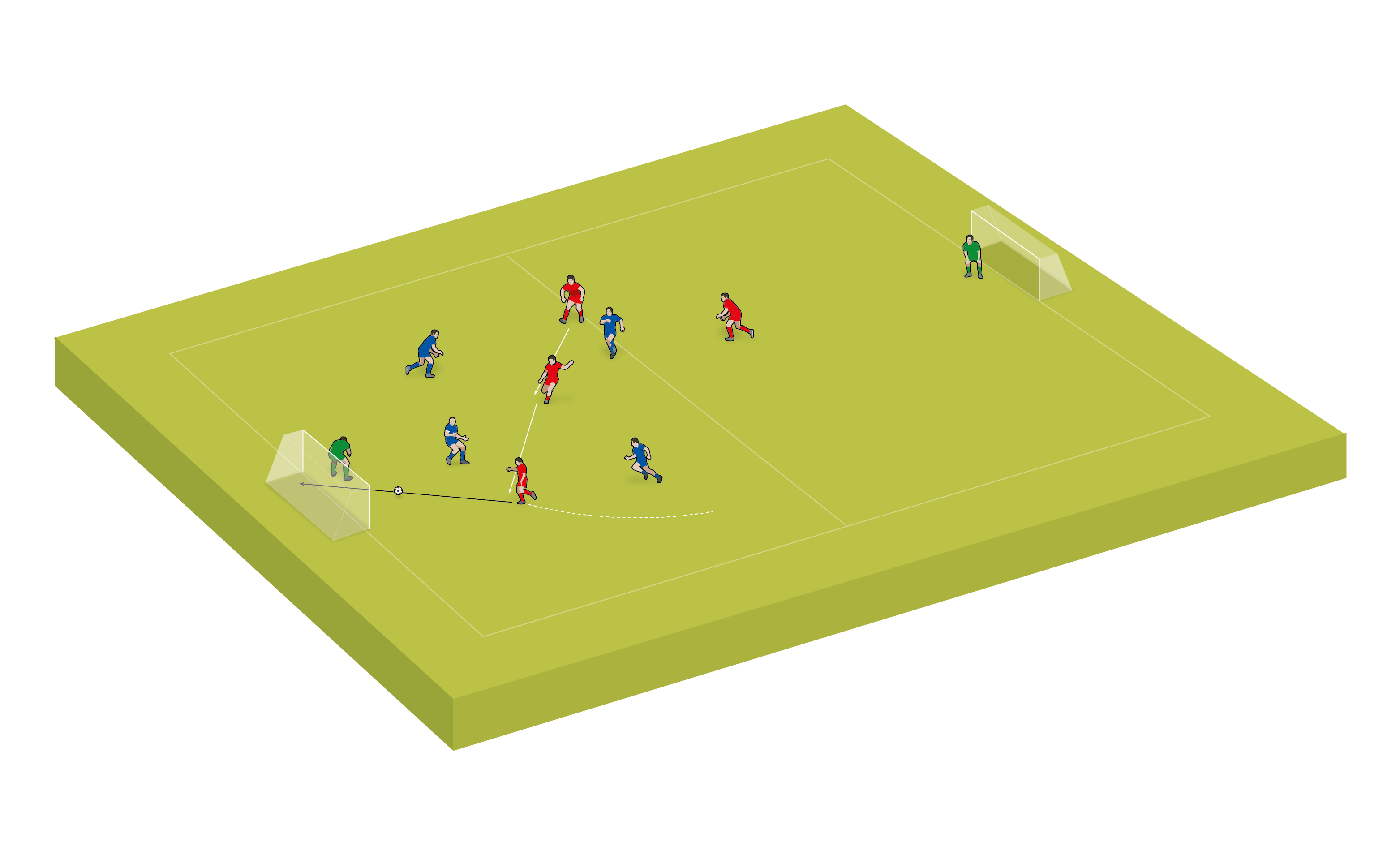Challenge your players
Coaching Adviceby Dave Clarke
Before the season begins you can work with your players and get them to do match specific challenges. Giving players problems to solve during training is a great way to get them to do it in matches.
Giving players problems to solve during training is a great way to get them to do it in matches. I ran one of my sessions from Soccer Coach Weekly recently, to give my players a real situation that I wanted them to exploit. In the session, the players are split into pairs and have three chances to score in a situation where they have a 3v1 overload.
When I first ran the session it was with a team I don’t coach very often and I was surprised at their response to being given the freedom to score goals. When I told them they had three goes to use their overload and score, their first reaction was: “How do we do that?”
I told them they could do whatever they wanted within the laws of the game but they had to exploit the situation. At first they were very pensive about being given this much freedom and shrugged their shoulders at each other, as if to say: “This coach is crazy! What should we do?”
In the first round of attacks the most any of them scored was one goal from the three goes, but they were beginning to get more excited by the challenge as they realized they could be as creative or as direct as they wanted.
This is an excellent challenge for the final third of the pitch where creativity and direct play are both correct ways to attack the goal. As the session wore on they finally began to hit the net more consistently but still none of them could get the full quota of three from three. This meant we ended the session with the players demanding I let them play it again the following week, so they could show me they were more than capable of scoring three from three.
I like to give challenges of this type to my players because not only does it give them ownership of the session but it also helps them to make the kind of decisions they would be faced with in a match.
My players will encounter lots of decisions during their training, like the ones that came out of the sessions in this issue. You should always try to ask questions of your players and set them challenges, even if the tasks are something as simple as “try to play forward whenever you get the ball”.
Challenges stretch players, and by stretching them you are developing their soccer brains and giving them the answers to the questions they get asked every time they play in a match.
I told them they could do whatever they wanted within the laws of the game but they had to exploit the situation. At first they were very pensive about being given this much freedom and shrugged their shoulders at each other, as if to say: “This coach is crazy! What should we do?”
In the first round of attacks the most any of them scored was one goal from the three goes, but they were beginning to get more excited by the challenge as they realized they could be as creative or as direct as they wanted.
This is an excellent challenge for the final third of the pitch where creativity and direct play are both correct ways to attack the goal. As the session wore on they finally began to hit the net more consistently but still none of them could get the full quota of three from three. This meant we ended the session with the players demanding I let them play it again the following week, so they could show me they were more than capable of scoring three from three.
I like to give challenges of this type to my players because not only does it give them ownership of the session but it also helps them to make the kind of decisions they would be faced with in a match.
My players will encounter lots of decisions during their training, like the ones that came out of the sessions in this issue. You should always try to ask questions of your players and set them challenges, even if the tasks are something as simple as “try to play forward whenever you get the ball”.
Challenges stretch players, and by stretching them you are developing their soccer brains and giving them the answers to the questions they get asked every time they play in a match.
Newsletter Sign Up
Coaches Testimonials

Gerald Kearney, Downtown Las Vegas Soccer Club

Paul Butler, Florida, USA

Rick Shields, Springboro, USA

Tony Green, Pierrefonds Titans, Quebec, Canada
Subscribe Today
Discover the simple way to become a more effective, more successful soccer coach
In a recent survey 89% of subscribers said Soccer Coach Weekly makes them more confident, 91% said Soccer Coach Weekly makes them a more effective coach and 93% said Soccer Coach Weekly makes them more inspired.
*includes 3 coaching manuals
Get Weekly Inspiration
All the latest techniques and approaches
Soccer Coach Weekly offers proven and easy to use soccer drills, coaching sessions, practice plans, small-sided games, warm-ups, training tips and advice.
We've been at the cutting edge of soccer coaching since we launched in 2007, creating resources for the grassroots youth coach, following best practice from around the world and insights from the professional game.
